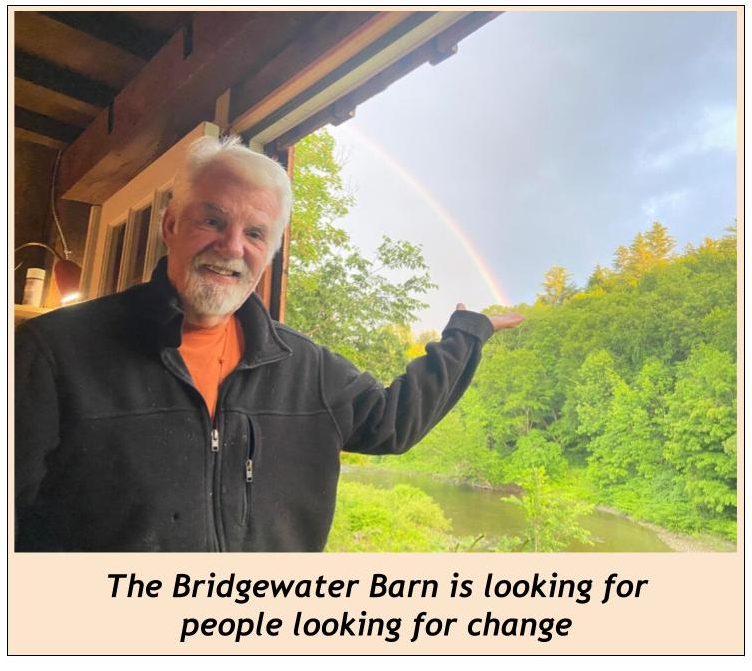Strong supporter at the polls and in battle,
home to three generations of descendants


By Guy Page
Abraham Lincoln never visited Vermont. But the Green Mountain State looms large in his life and ongoing legacy.
In the 1860 presidential campaign, Lincoln’s political advisors reportedly told him Vermont was so “in the bag” for him that to visit there would actually signal panic and weakness to the opposition. He visited New Hampshire – mostly to counsel his son on his poor college grades – but never crossed the Connecticut River into Vermont, the New England Historical Society reports.
As it turns out, his advisers were right. Vermont voters elected Lincoln by 76% of the popular vote in both 1860 and 1864. The 1860 margin was the widest of any state.
Women couldn’t vote until the 20th century. The November, 1864 Union Army contained the state’s largest voting bloc. Many were survivors of the horrors of Gettysburg, Cold Harbor, and countless other bloodbaths. McClellan offered a negotiated peace; Lincoln, war to the very end. That the soldiers chose Lincoln speaks to their commitment to the Union. As does Vermont’s highest loss of soldiers per capita of any northern state in “Mr. Lincoln’s War.”
Two of Lincoln’s most powerful political opponents were Vermonters. His main challenger in the 1860 presidential general election was Democrat and Brandon native Steven O. Douglas. The “Little General” found little support in Vermont. Lincoln won 76% of the popular vote, the largest margin of victory of any state that year.
Douglas had long ago left Vermont for the midwest. It probably didn’t help that he told a Middlebury College audience, “Vermont was a good state to be born in, provided you emigrate while young.”
On the other end of the political spectrum, Danville native and Radical Republican Thaddeus Stevens. The influential congressman (then of Pennsylvania) pushed hard for slave emancipation, imperiling Lincoln’s attempts to keep a pro-Union legislative coalition. They also clashed over the post-war reconstruction over the South.
Lincoln is remembered for personal acts of compassion to two Vermont soldiers.
A Vermont sharpshooter recalled that during Lincoln’s visit to Depot Field Hospital in Virginia in March, 1865, soldiers were told they could uncover our wounds, but must not speak to him. As recorded by History.net:
“I threw the blankets off so he could see that my right leg was gone, above the knee, and when he reached my bed he said: ‘What, a leg gone?’ I said: ‘Yes.’ He stopped at the head of my bed and looked at the card, saying, ‘and a Vermonter.’ I said: ‘Yes, sir, I pride myself on being a Green Mountain boy. I was born within seven miles of Mount Mansfield, the highest peak of the Green Mountain range.’ He then took my hand in both of his. I asked him:
“‘Well, Father Abraham, have we done our work well.’
“He said: ‘Very well, indeed, and I thank you.’
“I never shall forget the pressure he gave my hand, nor can I forget that sad, careworn face.”
By far the better known example of Lincoln’s compassion was his pardon of Private William Scott of Groton. The story “The Sleeping Sentinel” is recorded by the Groton Historical Society:
Private Scott had actually volunteered to take the place of a sick comrade and was serving his second consecutive night of sentry duty on August 31, 1861, when Scott was found asleep by the officer of the guard. He was immediately arrested and soon sentenced to death.
Fellow soldiers protested, and quickly Lincoln was asked for a pardon – which he granted. ONe account actually tells of Lincoln sending the pardoning order, then worried about the situation, ordered his carriage and had it driven the 10 miles to make certain that Scott’s life was spared.
In an essay written by Mrs. William (Nellie T.) Jeffrey of Groton, she wrote that President Lincoln told Scott he was not to be shot the next morning and did not merit the death penalty. Scott had given the President his solemn pledge, never again to fail in his duty to his country.
Scott was as good as his word. Seven days after his 23rd birthday, on April 16, 1862, Scott laid down his life admirably for his country. He died from five, perhaps, six gunshot wounds upon the battlefield at Lee’s Mills, VA., while assaulting the Confederate lines. Some accounts say he had rescued other troops from drowning and when shot was carrying a wounded soldier up an embankment.
Vermont stone can be found in many tombs, memorials, and statues raised in honor of the Great Emancipator. It could hardly have been otherwise, as Vermont was the source of the nation’s finest marble and granite, much of it quarried by a company owned by politically powerful governor and U.S. senator Redfield Proctor
Also, Lincoln’s tomb in Springfield, Illinois was designed by Larkin Goldsmith Mead of Brattleboro. A bust of Lincoln executed by Mead occupies a position of honor in the State House lobby.

Finally, Vermont would be home to three generations of Lincoln’s descendants. His son, Robert Todd Lincoln, built Hildene in Manchester after the turn of the 20th century.
According to the Hildene website, the name Hildene is formed from two old English words: “Hil” meaning “hill” and “dene” meaning “valley with stream.” Robert and his wife Mary gave their Vermont home this name because it is perched on a hill overlooking the Taconic Mountains to the west, the Green Mountains to the east, and the Battenkill river flowing through the great Battenkill Valley below.
The Lincolns built Hildene as a summer home at the turn of the 20th century. Robert was the only child of Mary Todd Lincoln and Abraham Lincoln to survive to maturity. He first visited Manchester as a young man in the summer of 1864 when he came to the Equinox Hotel to meet up with his mother and his brother Tad. Some forty years later he returned to purchase 392 acres of land to build what he would call his ancestral home. At the time, Robert was president of the Pullman Company—the largest manufacturing corporation in the country.
Peggy Beckwith, Abraham Lincoln’s great-granddaughter and the last Lincoln descendant to live at Hildene, died in 1975.
Categories: History








Thank you for sharing that history.
Well researched and informative essay on that tall country boy from Kentucky who grew up to save the Union. Easily the most interesting President we ever had even over super soldier, George Washington.
Many democrats have a faulted view of history, based on what they hear on CNN and MSNBC.
They need to be reminded that Lincoln was the original Republican President and that his party was founded to promote the end of slavery in the US. They also need to be reminded that it is the democrat party which specifically opposed emancipation, which crafted and defended Jim Crow laws and which engaged the KKK as their militant wing.